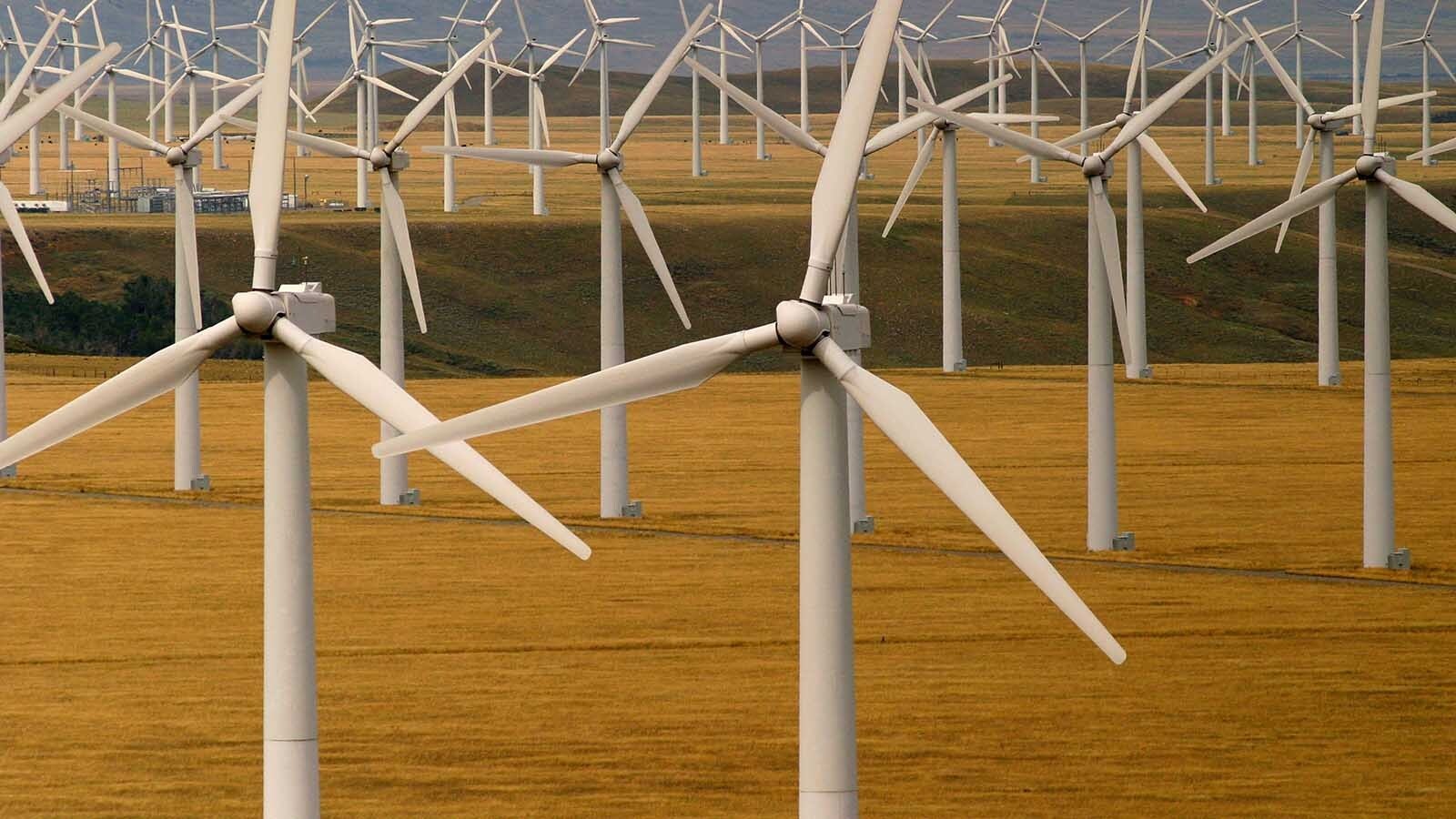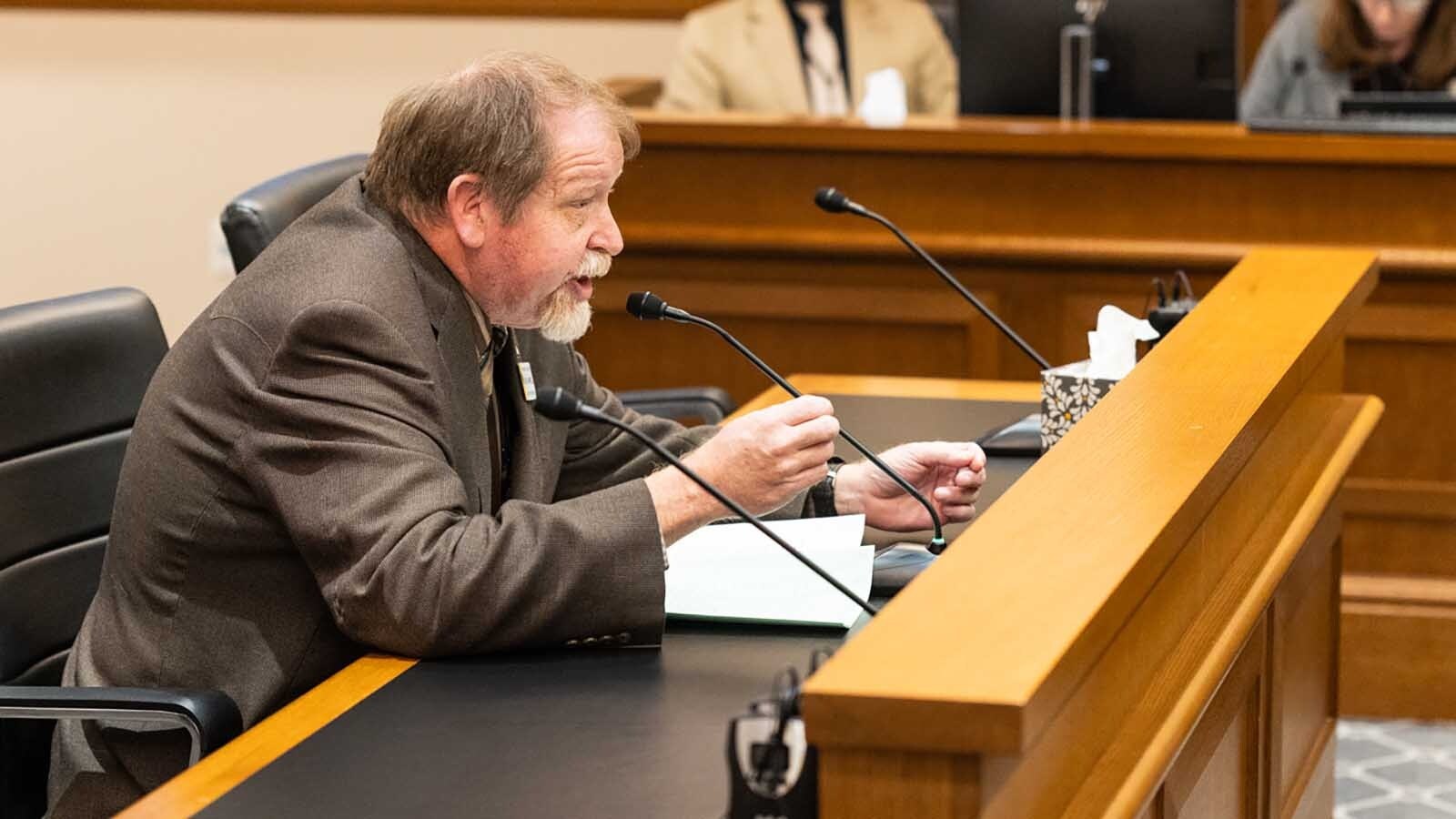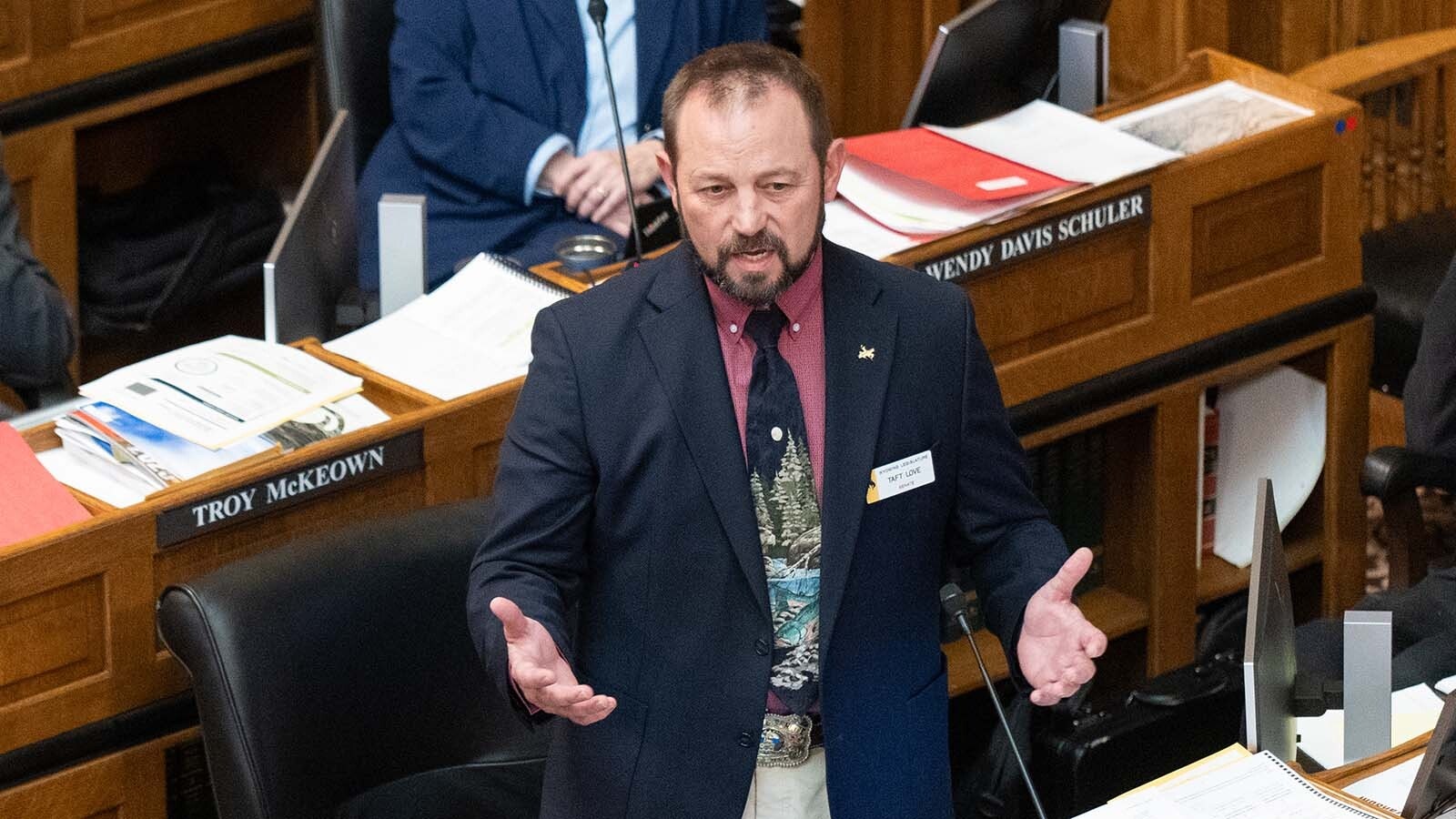As communities in Wyoming debate whether to allow spent fuel storage as the state's nuclear industry is growing, state legislators heard about how Canada has handled its dilemma of where to put its nuclear waste.
At a Council of State Governments West (CSG) conference hosted at Snow King Resort in Jackson on Wednesday, Wyoming legislators were among those learning about how Canada was able to identify a nuclear waste site in stark contrast to the United States, which has never successfully identified a location for permanent storage.
Whether or not Wyoming should allow more nuclear waste to be stored in the state continues to divide towns from Rock Springs to Bar Nunn to Gillette.
Safely disposing of nuclear waste has been a critical topic of discussions between members of the Wyoming Legislature’s joint interim Minerals, Business and Economic Development Committee. The committee continues to grapple with a mix of economic opportunities and local concerns around waste.
The U.S. currently stores about 90,000 tons of nuclear waste at over 100 sites in 39 states, with more than 315,000 bundles of spent nuclear fuel rods stored in over 3,800 dry storage casks at current and former power plants across the country, according to the Department of Energy.
A 1987 federal law named Yucca Mountain in Nevada as a permanent disposal site for nuclear waste, but political and legal challenges led to construction delays. Work on the site had barely started before Congress ended the project's funding altogether in 2011.
The nuclear energy forum in Jackson on Wednesday included representatives from federal agencies, state officials and legislators from across the Western U.S.
Wyoming Representative Mike Yin, (D-Jackson) chairs the Council of State Governments West and helped organize the conference. He described the session as primarily educational.
"It was mostly educational for us to ask questions of experts," Yin said in an interview. "So both experts on the regulatory side, there was someone from the Nuclear Regulatory Commission and those from the Department of Energy side, and the Department of Energy had the job of incentivizing as well as the Idaho National Lab."
Beyond Yucca
Wednesday’s panel was facilitated by John Kotek, senior vice president for policy development and public affairs at the Nuclear Energy Institute. Kotek led discussions about Canada's successful approach to finding a willing community to host nuclear waste storage.
"There's talk about what happened with Yucca Mountain and how it's not going to be feasible ever again to do a national repository in Nevada anymore because of the way that played out," Yin explained. "And Canada had like a 20-year process where they actually solicited communities and said, ‘Which community is interested in having a national repository where it makes sense for your community to want this?’ How that different approach led to a different outcome."
Canada announced in November 2024 that it had selected Wabigoon Lake Ojibway Nation and the Township of Ignace in northwestern Ontario as the host communities for the country's deep geological repository for used nuclear fuel, concluding a multi-decade, consent-based process that focused on technical safety and community willingness to host the facility, according to Canada’s Nuclear Waste Management Organization.
The process to select a site for Canada's plan started in 2010, with 22 communities initially expressing interest in learning about the project and exploring their potential to host it. The repository will be built 650-800 meters underground and will use a multiple-barrier system designed to safely contain and isolate used nuclear fuel over the very long term.
Wyoming Rep. Lloyd Larsen, R-Lander, who attended the forum at Snow King and has been involved in Wyoming's energy discussions, emphasized that Canada's success isn't unique globally.
"There's several other countries that have completed the process for permanent storage of spent fuel,” said Larsen, mentioning Sweden and France.
Larsen noted what he sees as an inconsistency in Wyoming's approach to nuclear energy.
"We do things a little hypocritical. We want to mine uranium to send it out, but we don't want to do anything on the waste," he said, referencing Wyoming's role in uranium production but reluctance to consider waste storage.
Experts In Room
Describing Wednesday’s session on waste, Edgar Ruiz, spokesperson with CSG West, said, “They focused a lot on, certainly what's happening in Wyoming, some of the projects here, but also some of the opportunities and challenges.”
Ruiz described Wednesday’s session as well-attended, with about 60 people in the room, including Commissioner Brad Crowell from the Nuclear Regulatory Commission and Dr. Josh Jarrell, with the used fuel management department at Idaho National Laboratory.
The forum also addressed technical improvements in nuclear waste management.
"Before in previous situations, some reactors created liquid waste. There's no reactor that creates liquid waste anymore," Yin explained. "In any process we do have, we make sure it ends with solid waste. So solid waste doesn't have the same leakage issues that liquid waste has."
The 94 nuclear reactors currently operating at 54 power plants across the U.S. continue to generate more radioactive waste, with public and commercial interest in nuclear power rising because of concerns regarding emissions from fossil fuel power plants and the possibility of new applications for smaller-scale nuclear plants to power data centers and manufacturing.
In Wyoming, Bar Nunn and Gillette are identified as possible manufacturing hubs. But no Wyoming community has raised its hand and asked to become home to a new nuclear waste storage site.
Larsen emphasized the safety record of current storage methods, noting that according to the Department of Energy, "The storage of spent fuel is a very boring thing. We can handle it. And there's nothing really exciting about it."
David Madison can be reached at david@cowboystatedaily.com.






